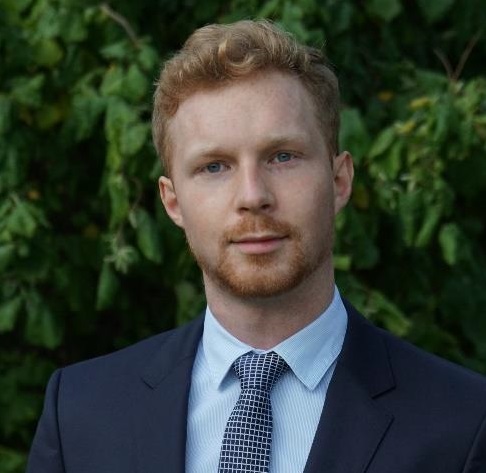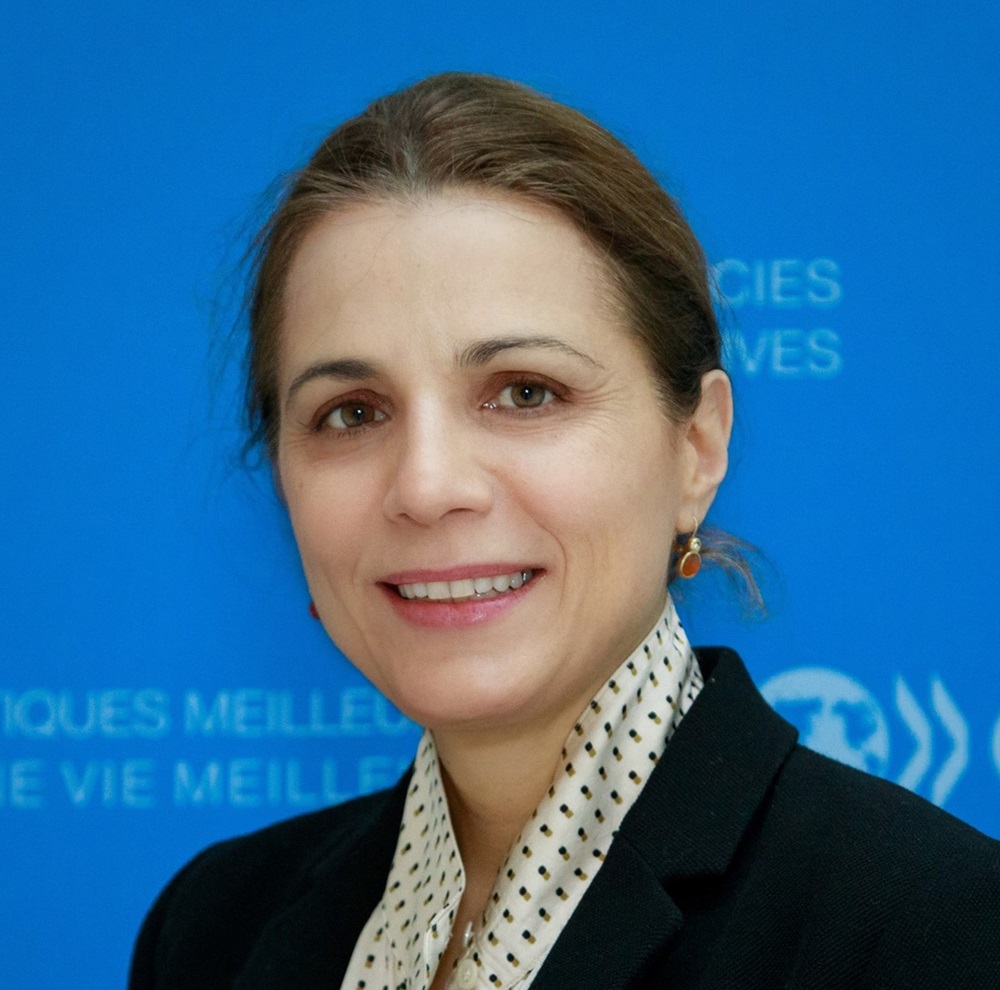Thursday, Apr 24, 2025 | 04:15 PM - 06:15 PM
Location: Cedar Hall HQ1-1-660
OVERVIEW
Fiscal institutions in ministries of finance worldwide have been advancing the digital transformation of public finance, recognizing the potential of digital technologies to enhance their operations. Among these technologies, AI has sparked particular interest, with governments exploring its applications across various areas. Governments must grapple with both the potential of AI and the complexities of scaling its implementation effectively and responsibly. At the same time, governments, especially in emerging and developing economies, face challenges that hinder progress in digitalizing fiscal operations, including outdated systems, limited interoperability, and difficulties to establish governance frameworks. This workshop will comprise two panels to explore how governments are leveraging technologies and how the surge in AI interest has accelerated innovation and raised new expectations, including with AI use cases, setting up projects effectively, and approaching AI responsibly.
OPENING REMARKS

Juan Toro
Deputy Director, Fiscal Affairs Department, IMF
Juan Toro is Deputy Director of the IMF’s Fiscal Affairs Department (FAD) since August 2020, in charge of managing FAD budget; relationship with development partners and fundraising for FAD capacity development (CD), in close coordination with ICD; governance and management of FAD CD delivery; FAD Operations, coordinating FAD CD to WHD from 2024 (EUR in previous years), and overseeing FAD work on GovTech from 2024. Before August 2020, he was Assistant Director in charge of the IMF’s revenue administration CD to EUR, APD, and MCD regions.
Session 1: Getting the Foundations for AI Right
OVERVIEW
From modernizing financial management systems to enhancing data analytics, ministries of finance are exploring how digital innovations can contribute to more efficient, data-driven decision-making. At the same time, many are eager to experiment with AI. However, the readiness of the digital public finance ecosystem remains uneven, as countries are at different levels of digital maturity. As a result, AI initiatives frequently struggle to scale. This panel will explore real-world examples on how structural challenges must be addressed to integrate AI in public finance, including lessons learned from early pilots.
MODERATOR

Debra Adams
Division Chief, Fiscal Affairs Department, IMF
Debra Adams is Division Chief of Revenue Administration Division 1 at the IMF’s Fiscal Affairs Department (FAD). Debra has been with FAD for 18 years and oversees the IMF’s revenue administration capacity development (CD) programs across Asia, Pacific, Europe, Central Asia, North Africa, and Middle East. Debra is British, started her career with the UK tax authorities, and has 40 years of experience. She has supported countries’ major tax reform projects for 25 years, including with PricewaterhouseCoopers, as an in-country advisor, a regional advisor, and a project manager. She has a master’s in public administration from the Harvard Kennedy School.
PANELISTS

Edward Kieswetter
Commissioner, South African Revenue Service
Edward Kieswetter was reappointed as Commissioner of the South African Revenue Service (SARS) on 1 May 2019, marking his return to an institution where he previously played a pivotal role in shaping its strategic direction. Between 2004 and 2009, he served as SARS Chief Operating Officer and Deputy Commissioner, and was instrumental in establishing the Large Business Centre and the High Net Worth Individual Unit. His leadership during that period significantly contributed to modernising tax administration in South Africa.
Prior to rejoining SARS, Edward held the position of Group Chief Executive at Alexander Forbes Group Holdings from 2010 to 2016. He successfully led a widely recognised turnaround of the organisation, culminating in its listing on the Johannesburg Stock Exchange in July 2014. His broader executive experience spans key roles at FirstRand Banking Group and Eskom. He has also served on several prominent boards, including Transnet, Shoprite Holdings, and the Technology Innovation Agency, and managed private investments before stepping away from all external appointments to focus on his role at SARS.
Edward is an influential voice in international tax and customs administration. He currently serves as Chair of the African Tax Administration Forum, Vice Chair of the OECD Forum on Tax Administration, and Chair of the World Customs Organization. His leadership has strengthened South Africa’s presence in global tax discourse, and he continues to advocate for effective, transparent, and equitable tax systems across the continent and beyond.

David Hadwick
Researcher, Center of Excellence ‘DigiTax’
David Hadwick, LL.M. Researcher at the Centre of Excellence ‘DigiTax’ (University of Antwerp, Belgium). Fellow at the Research Foundation for Flanders (Grant Number: 11J1522N). Member of the Antwerp Centre for Responsible Artificial Intelligence (ACRAI). David Hadwick is administrator of ‘TaxAdmin.ai’, an open-access repository of AI systems used by tax administrations. David is also part of the roster of external experts of a number of international organizations. As an international expert, David advises tax administrations on the responsible implementation of artificial intelligence and machine-learning.

José Borja Tomé
Chief Information Officer, Spanish Tax Agency
José Borja is Chief Information Officer of the Spanish Tax Agency (AEAT) since 2020, where he was formerly Deputy Director General for information analytics and fraud investigation technologies. In his more than 30 years of experience, he has led the digital transformation of the AEAT, of other public organizations and of a national police force.
This panel will explore the main aspects of a responsible adoption of AI in public finance, balancing innovation with accountability. Experts will discuss key principles such as transparency, fairness, and governance, alongside practical considerations for implementation. Panelists will also discuss the practical aspects of integrating AI into existing digital public finance ecosystems, and the need for clear governance frameworks.
MODERATOR

Sailendra Pattanayak
Division Chief, Fiscal Affairs Department, IMF
Sailendra Pattanayak is currently a Division Chief in the Fiscal Affairs Department of the IMF. He has extensive experience in the public financial management area and the wider public sector. Since joining the IMF in 2006, he has advised a wide range of countries, of all income levels, on public financial management, and has led policy development in key areas such as fiscal transparency, digitalization, fiscal governance, treasury management, climate, and fragile states issues. He has been a lead contributor to several IMF Board papers. He led the team that produced the Fiscal Transparency Handbook as well as analytical work/published papers on a broad range of fiscal topics. His leadership in GovTech initiatives and ongoing analytical work on digital money in fiscal operations and fiscal governance is particularly noteworthy. Prior to joining the IMF, Sailendra held senior positions in the Indian federal government, including at the Ministry of Finance and as Deputy Secretary at the Ministry in charge of roads, ports, and inland waterways. He holds a degree in mechanical engineering from National Institute of Technology (NIT) in India, and master’s degrees in public administration and public policy respectively from the École nationale d'administration (ENA) and Sciences-Po in Paris.
PANELISTS

Delphine Moretti
OECD, Working Party Lead on Public Financial Management and Reporting
Delphine Moretti is Lead of the Organization for Economic Cooperation and Development (OECD) Working Party on Public Financial Management and Reporting. As part of her functions, she works closely with OECD countries on developing innovative practices in PFM. She oversees the OECD’s research work programme on fiscal risks management and digitalization of public financial management. Prior to this, Ms. Moretti served in the International Monetary Fund (IMF), where she held positions in headquarters and Southeast Asia. Ms. Moretti also previously held positions in the Ministry of Finance in France

Tania Gomes
Coordinator for Data, Products and Digital Transformation, Treasury of Brazil
Tânia Gomes Ramos is the Coordinator for Data, Products, and Digital Transformation at the National Treasury of Brazil. Tânia is responsible for driving deliveries related to the modernization of public service provision with customer-oriented products, the modernization of data-driven decision-making models, and promoting efficiency and digital transformation through innovative solutions.
CLOSING REMARKS

Gerardo Una
Deputy Division Chief, Fiscal Affairs Department, IMF
Gerardo Una is Deputy Division Chief at the Fiscal Affairs Department of the IMF, responsible for the planning and budgeting of capacity development activities, and, as alternate, for digital innovations in public finance initiatives. Previously, as a Senior Economist, he provided technical assistance on fiscal management to countries in Latin America and the Caribbean, Africa, and South Asia. He led the FAD Capacity Development Strategy Support Team from 2022 to 2023. Before joining the IMF in 2016, he worked for the Ministries of Finance in Chile, Argentina, and Paraguay